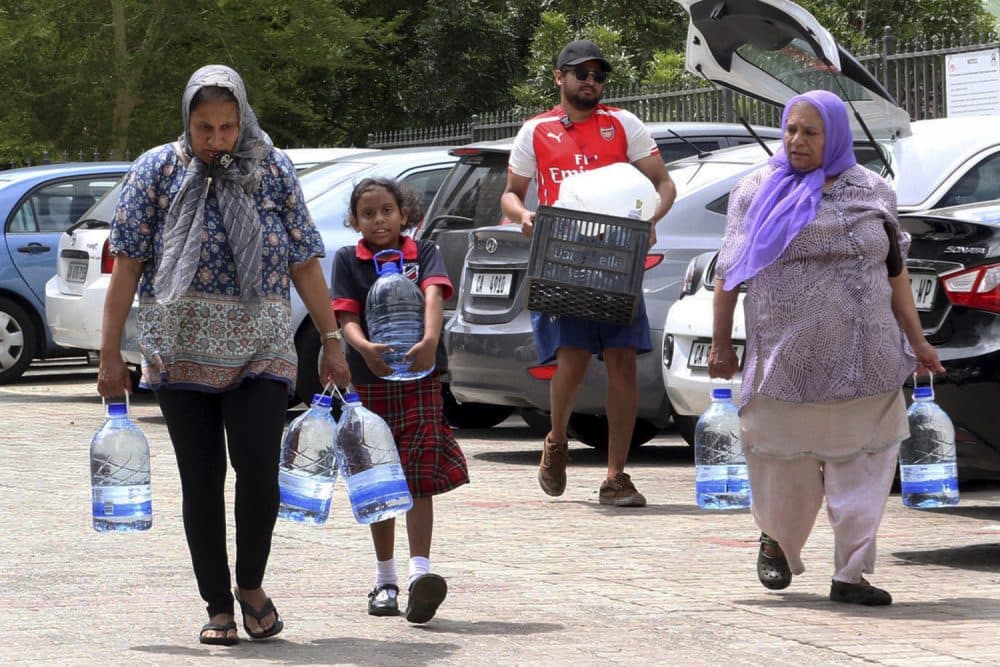Advertisement
‘Day Zero’ Nears For Cape Town As Water Runs Low
Resume
Water in a major city in South Africa is expected to run out by April.
Cape Town officials are calling it “Day Zero.” After prodding residents to conserve water — and largely failing — the government will shut off the taps entirely on April 12, CBS News foreign correspondent Debora Patta explained in an appearance on the NPR show On Point Thursday.
“The city can no longer cope with its population and the tourists coming in,” Patta said.
Patta joined our program as part of our discussion Thursday about how the world will be able to handle 10 billion people. It’s estimated to hit that mark in 2050.
Population problems are playing out already in drought-stricken Cape Town, where growth has put a massive strain on resources. Cape Town has been dealing with three successive droughts, along with higher temperatures due to climate change.
Residents of Cape Town have had to wait in line to get their allotment of 25 liters of water; to comply with water restrictions, they're supposed to use the water to shower, then re-use the water, collecting it to flush toilets.
“It’s a very difficult situation and I think for a lot of people it's a shock — they can't quite believe that this is really going to happen, and there is a lot of denial,” Patta said.
We also talked Thursday to Charles Mann, whose previous books include “1491” and “1493.” His new book, “The Wizard and the Prophet,” looks at dueling visions about the future of humanity.
Mann explained that previous efforts to control population by coercion ended up veering into grave human rights abuses, like forced abortions and sterilizations.
They were also mostly unsuccessful in controlling the population.
"What is really effective is empowering women by giving them education, an opportunity to make a living,” Mann said.